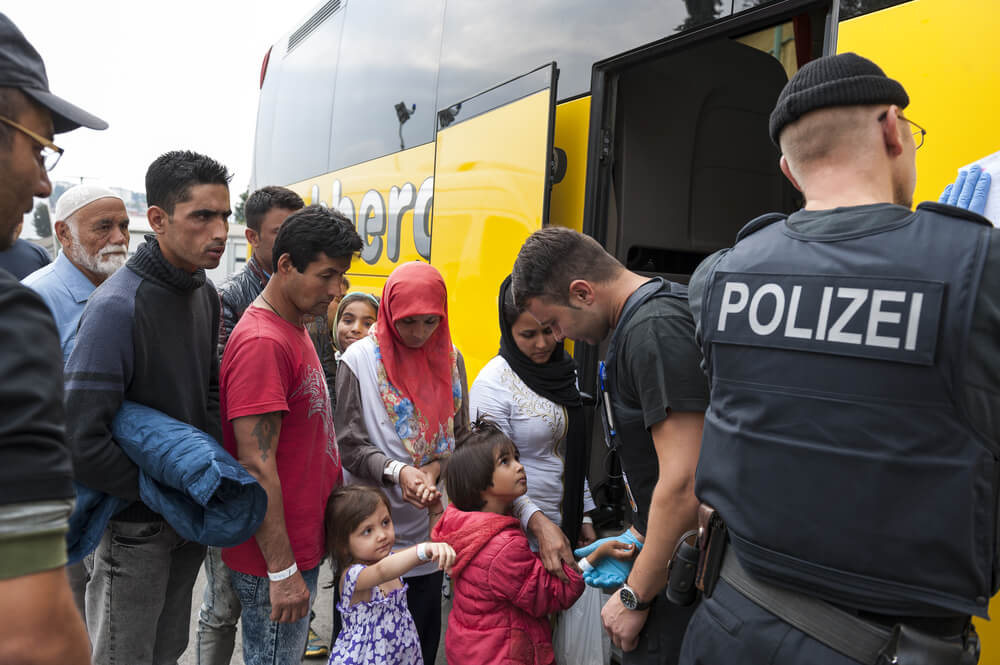Turkish President Recep Tayyip Erdoğan and German Chancellor Olaf Scholz will meet next week in Istanbul, for the third time in the last three months.
Is there a chance that the forthcoming Turkish-German summit will bear some fruit after such frequent communication between the two leaders and their meetings in July in Washington and in September in New York?
Following the recent meetings between the two leaders, there was limited information available to provide a detailed description of the direction of the agreements on key issues, including migration, the ongoing wars in Ukraine and the Middle East, and particularly Turkey's aspirations regarding European integration.
Regardless, the frequent meetings between President Erdoğan and Chancellor Scholz indicate that a breakthrough is possible at some of the important points not only in the interstate relations between Turkey and Germany but also in the broader context of their alliance in NATO, or relations with the EU.
Is Eurofighter coming to Turkey?
At the Istanbul meeting, it is possible that Germany will lift the restriction on the sale of modern Eurofighter Typhoon aircraft, which Turkey has been requesting for its air force since last year.
Germany is the last in a chain of four Eurofighter manufacturers to veto the sale of the aircraft to Turkey, as Ankara previously received approval from the UK, Italy, and Spain.
Berlin's opposition to the significant deal with Turkey is primarily political, stemming from the German Greens, a member of the ruling coalition, who hold significant reservations about Ankara's Middle East policy.
The green light for Turkey's purchase of European aircraft would be logical for maintaining the balance among NATO allies
However, there are frequent reports that Berlin has been "reconsidering" its veto. If these announcements come true, this could pave the way for Turkey to procure at least 20 modern jet fighters, valued at approximately $5.6 billion.
The Turkish Air Force desperately needs them to catch up to its partners in terms of technology, as their exclusion from the American F-35 fighter acquisition programme has caused them to fall behind.
The green light for Turkey's purchase of European aircraft would also be logical for maintaining the balance among NATO allies, given that Greece recently concluded an agreement on the purchase of 20 F-35s.
Migrants and gas—Scholz's goals
If it comes true, this concession should give the German chancellor a reason to demand a counter-concession from the Turkish leader.
Chancellor Scholz would be thrilled to bring home at least one of several fruits, which are at the top of the priority list for Germans. For example, a new agreement with Turkey regarding migrants or a significant advancement in natural gas supply.
In both cases, Turkey is Berlin's indispensable interlocutor, and in the election year that has just begun in Germany, any progress has special political weight for the German ruling bloc.
 Chancellor Scholz would be thrilled to bring home at least one of several fruits, which are at the top of the priority list for Germans. For example, a new agreement with Turkey regarding migrants
Chancellor Scholz would be thrilled to bring home at least one of several fruits, which are at the top of the priority list for Germans. For example, a new agreement with Turkey regarding migrants
Following public pressure resulting from a series of violent crimes committed by migrants in Germany, Scholz's government announced at the end of September that it had reached an agreement with Turkey on a plan to intensify the deportation of Turkish asylum seekers.
However, Ankara soon distanced itself from any such deal. However, Berlin continues to keep this position, albeit with more caution than they did a month ago.
"The federal government is in ongoing talks with Turkey on migration policy issues, including in the area of repatriation cooperation," said a spokesperson for the German government on Friday.
Turkey is also an indispensable interlocutor for Scholz's government when it comes to the search for a stable supply of natural gas at affordable prices, so it is more than interested in deliveries from Central Asia (Turkmenistan), in which Turkey as a hub plays a key role.
Chancellor Scholz will not be able to avoid Turkey's renewed pressure for a visa-free regime during the meeting with Erdogan on October 19, which would primarily benefit the three million Turkish diaspora in Germany.
EU package
Also, the meeting between the two leaders comes just before the BRICS summit in Kazan, Russia, an anti-Western organisation to which Turkey has recently formally applied for membership.
The timing of the Turkish-German summit in Istanbul, therefore, seems like an important opportunity for the German chancellor to ask Ankara, on behalf of the EU, to reconsider its ambitions for membership in the alliance with China, Russia, and Iran.
The Istanbul summit can reveal what the EU is truly prepared to offer Turkey regarding its ongoing ambitions to become a member of the Union
Turkey may have intended its BRICS membership application to have this exact effect, leading key European leaders like Chancellor Scholz to urge Turkey to reconsider forging an alliance with its primary rivals in the West.
In this respect, the Istanbul summit can reveal what the EU is truly prepared to offer Turkey regarding its ongoing ambitions to become a member of the Union.